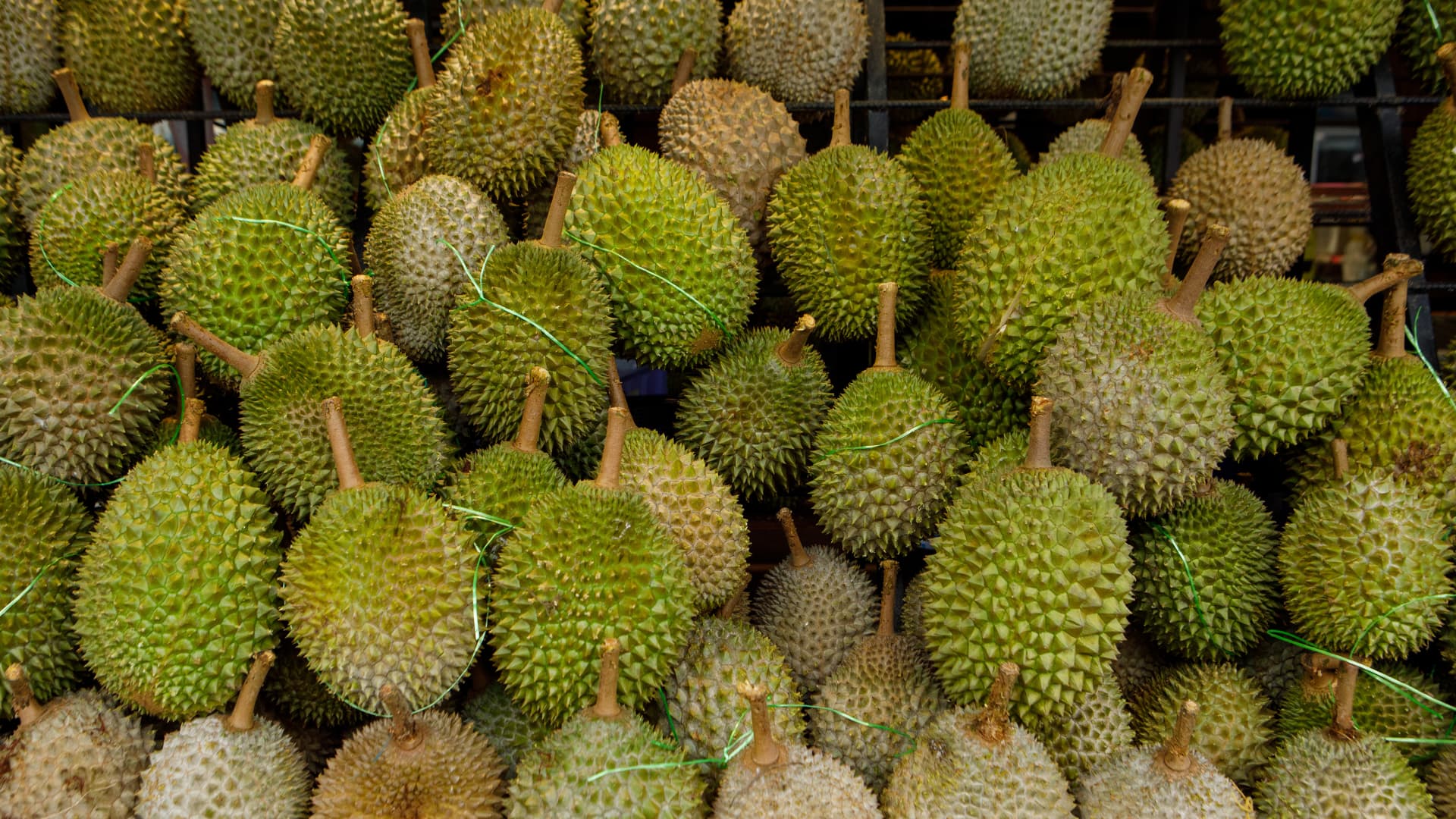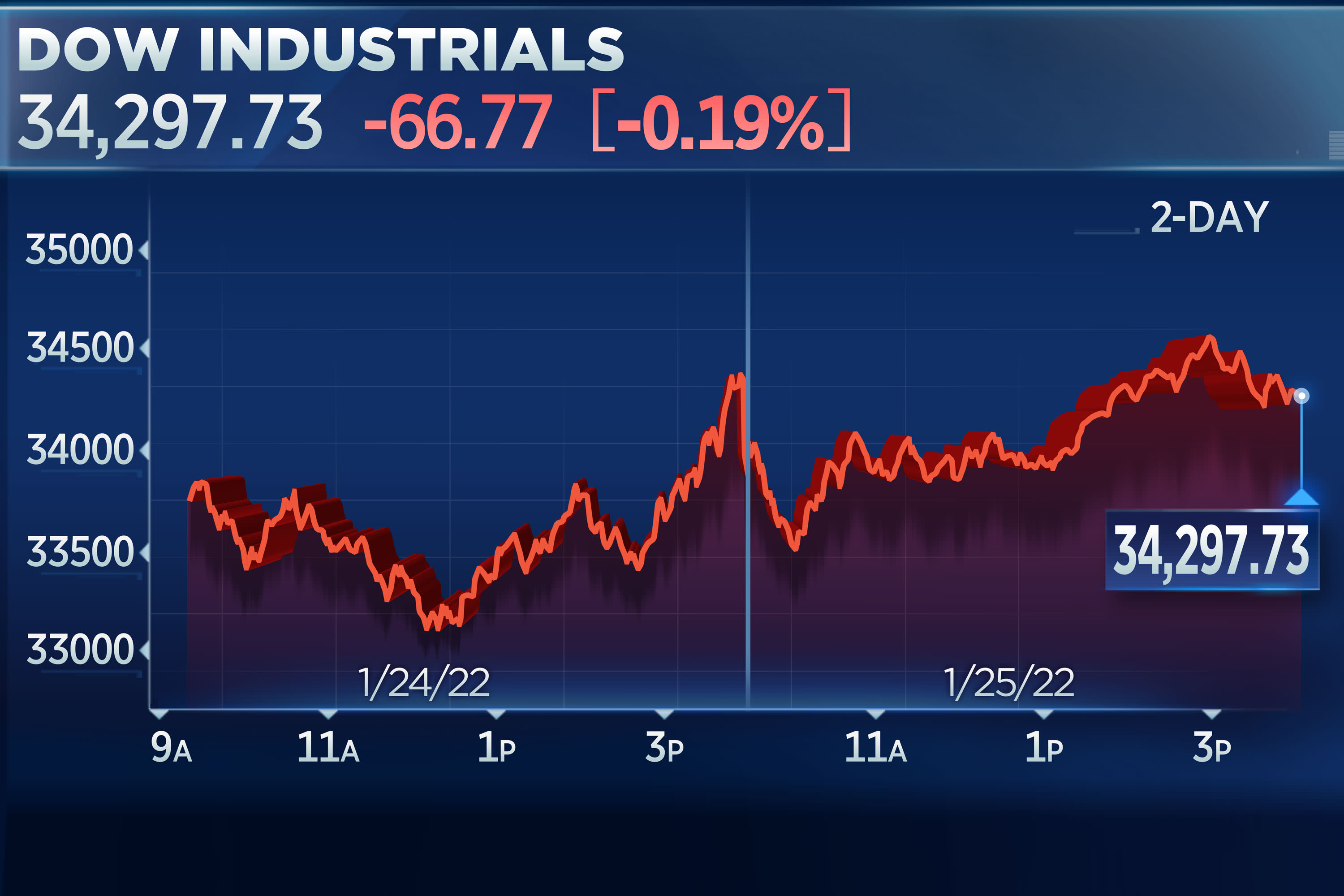Demand for the world's smelliest fruit has soared 400%, fueled by China’s ‘craze’
Demand for durians has soared 400% year-on-year, largely bolstered by a "craze" for the fruit in China, said HSBC.

Different varieties of durian fruits on display at a durian stall in Petaling Jaya, Selangor, Malaysia,.
Bloomberg | Bloomberg | Getty Images
Some say it's sticky-sweet, others say it smells like socks. Love it or hate it, the appetite for durians is growing voraciously — especially in China.
Global demand for polarizing fruit soared 400% year-on-year, according to HSBC which said it's largely bolstered by a "craze" for the fruit in China.
"Bucking global trends, durian demand is surging by 400% year-on-year led solely by a craze in China," a report released by the bank on Monday said.
Over the past two years, China imported $6 billion worth of durians — accounting for 91% of global demand, HSBC's ASEAN Economist Aris Dacanay said in the report.
The "durian boom" is largely concentrated in China, where consumers do not view it as just a fruit, but also as a gift that flaunts the giver's wealth.
Additionally, it has become more common in China to include durians as part of customary gifts to friends and relatives upon engagement.
While the boom in China's durian demand started as early as 2017, the uptick in demand only picked up from late 2022, according to data from HSBC.
Key durian exporters
The "king of fruits" sells for more than $10 a kilo in China, compared to an average of around $6 a kilo across Southeast Asian countries.
And the main supplier of this surge in demand lies in ASEAN, which accounted for 90% of the world's durian exports in 2022.
Thailand alone makes up 99% of total durian exports in the 10-nation Southeast Asian bloc comprising Brunei, Cambodia, Indonesia, Laos, Malaysia, Myanmar, the Philippines, Singapore, Thailand, and Vietnam.
Will durian be the new rubber? Maybe someday, it will be a world tradition to give your [prospective] mother-in-law a durian. Only time will tell.
Aris Dacanay
ASEAN economist, HSBC
"Will durian be the new rubber? Maybe someday, it will be a world tradition to give your [prospective] mother-in-law a durian. Only time will tell," said Dacanay.
The surge in durian demand carries opportunities for the rest of Southeast Asia as well, not just Thailand, the economist said.
"The market in China is so large that there is plenty of room for other ASEAN nations to jump right in and compete – a durian 'rush' of sort," Dacanay wrote.
The Regional Comprehensive Economic Partnership free trade deal, which comprises the ASEAN bloc in addition to China, South Korea, Japan, Australia and New Zealand, allows participants freer and equal access to the Chinese market, the report observed.
"The window of opportunity is there... the durian market is still getting bigger as other economies in ASEAN eagerly rush in to compete against Thailand's dominance over the King of Fruits," said Dacanay.

 JimMin
JimMin 































